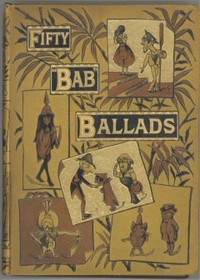Ballad: Ellen McJones Aberdeen
byEllen McJones Aberdeen appears not merely as a bystander but as a flame that burns quietly at the center of a tale charged with culture, music, and personal change. In the company of Highlanders and bold pipers, she stood not just as a figure of beauty but as a listener who truly felt the spirit of the land. Her admiration for the stirring tunes of Angus McClan reflected more than simple affection—it revealed a connection to something ancient, something that stirred both memory and soul. As pipes roared through the glens and reels filled the smoky Highland air, her whispered praise breathed encouragement into the musician’s heart. Ellen became the symbol of music’s gentle persuasion, the voice that reminded the player why the tradition mattered. In her presence, the wild sound of Scotland transformed from noise into reverent soundscape, echoing a timeless truth about identity, passion, and heritage.
At first, Pattison Corby Torbay could not see the beauty Ellen so clearly understood. To him, the music was nothing but racket—strange and jarring to his southern ears. He mistook the loudness for lack of structure and the spirit for mere disorder. His reaction was almost comical, but rooted in real discomfort. Not everyone hears tradition the same way, especially when unfamiliar sounds clash with personal taste. His protest, though exaggerated, mirrored the reaction of many outsiders when confronted by something deeply local and heartfelt. Yet the pipes continued, defiant and proud, with Angus and his companions playing through the night like sentinels guarding the soul of their homeland. They didn’t play to entertain him—they played to be heard, felt, and remembered. And in doing so, they offered him an uninvited yet invaluable education.
With each hour, the music worked a subtle change. Pattison’s stubbornness softened—not quickly, but gradually, like frost melting in morning light. As dawn stretched its golden fingers across the glen, he began to listen, not just hear. The strange rhythms started to make sense. The melodies, once jarring, now seemed to tell a story—of hills that remember battles, of families long lost, of love that waits patiently. What Ellen had understood instantly, Pattison now discovered slowly: that the pipes carry the emotional weight of a people. Their power isn’t in precision but in presence, in the way they pulse through the bones and stir the stillness. This realization humbled him. It shifted him from critic to student, opening him up to an experience far richer than he’d expected.
Pattison’s departure in the morning light wasn’t one of shame, but of respect. He left not in defeat, but in quiet reflection, his earlier arrogance softened by understanding. His disdain had been met not with insult, but with persistence—and that made all the difference. Ellen’s voice, so soft yet so decisive, and Angus’s music, raw but resilient, had taught him something essential. He had come to scoff, and he left transformed, recognizing in the Highlanders a strength that was not loud but lasting. Behind the reeds of the chanter and the drone of the bagpipes, he’d heard a homeland singing—not to impress, but to exist. And that, more than anything, earned his reverence. His learning, brought on not by lecture but by living example, would shape how he viewed other cultures in the future.
In the aftermath of his journey, the glens were not silent. Angus continued to play, joined now not by protest but by peace. Ellen stood by his side, no longer just a voice of encouragement but a partner in the rhythm of Highland life. Their love was not dramatic or public, but steady, like the music they cherished. It grew in harmony with the land—wild yet welcoming, ancient yet alive. They understood that tradition isn’t about clinging to the past, but about allowing it to breathe in the present. The melodies Angus played were no longer just echoes of history; they were alive, evolving with each breath he drew through the pipes. Ellen, through her presence and praise, became both muse and message—a reminder that culture endures through those who believe in it deeply.
For readers, this story holds a soft but steady message. Respect is not something we impose, but something we learn. Cultural music, especially one as spirited as Scotland’s piping tradition, demands not just ears but openness. It teaches us that what may seem strange at first may become beautiful with understanding. Ellen McJones Aberdeen showed that love and music share the same quality—they don’t need translation when the heart is willing. And like the Highland winds that carry the sound of pipes through the hills, the message of this tale lingers, long after the final note has been played.

